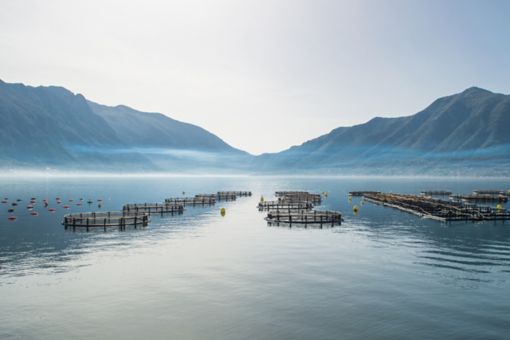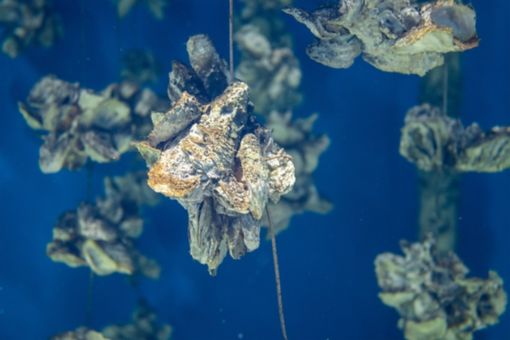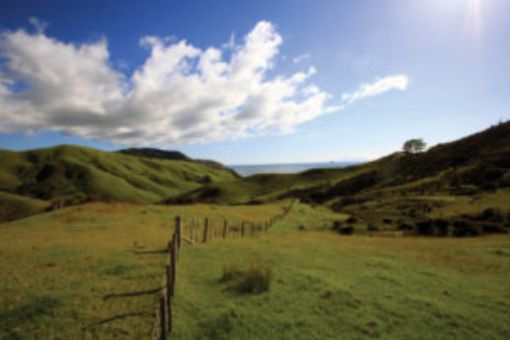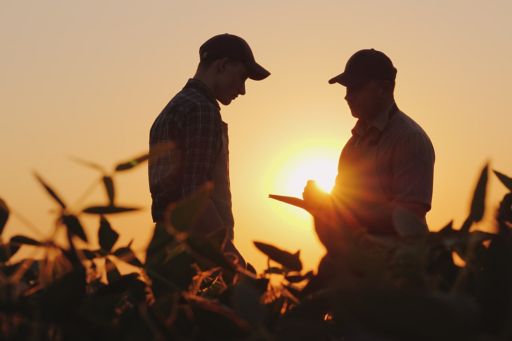Week in Review
In Aotearoa…
Poultry exports to Australia will resume following the avian flu outbreak in Otago. Officials ceased trade of poultry products last week but have come to an agreement after test results from a further outbreak were negative for the H6N6 strain, leading Biosecurity New Zealand to believe the original outbreak was caused by an existing disease among the birds.
New Zealand recently hosted its first International Seed Testing Association (ISTA) workshop, which focused on germination and testing methods to safeguard seed production. The workshop, led by analysts from Argentina and Italy, ensures consistency between laboratories through practical training and international standards updates. Many importing countries only accept results from ISTA-accredited labs.
According to ASB’s latest regional economic scoreboard, the South Island is leading in economic performance, with the agricultural sector set to drive further growth. Despite current challenges like a subdued housing market and increased unemployment, there is cautious optimism for economic improvements in 2025 across various sectors, including construction, retail, and agriculture.
New Zealand and Singapore research organisations are invited to collaborate on advanced biotechnology solutions in food manufacturing, aiming to improve sustainability, accessibility, and nutritional profiles. The initiative provides up to NZ$12 million in funding over three years, with New Zealand teams eligible for up to NZ$3 million per project. Proposals must be jointly developed by New Zealand and Singaporean partners for submission by February 28, 2025.
In international news...
The British Court of Appeal has ruled that Oatly, a Swedish vegan brand, cannot use the term 'milk' in its marketing for its oat-based drinks. The decision prohibits Oatly’s “Post-Milk Generation” trademark on product packaging in the United Kingdom (UK), protecting the term ‘milk’ for the dairy sector.
Dutch company dsm-firmenich and dairy cooperative Arla have announced a trial of Bovaer, a methane-reducing additive, on more than 30 farms. While food standard authorities deem the additive safe for cows to consume, the announcement has faced significant criticism over concerns about its impact on animal and human health.
In Australia, ideal weather conditions have resulted in an oversupply of herbs, but demand has stagnated. Herbs are a volatile and expensive crop, and often experience reduced consumer demand when the cost-of-living increases. The suppliers are working closely with growers to ensure planting is aligned with demand.
- Lower South Island continues to have strongest economic results
- NZ hosts ISTA seed-testing workshop
- Agreement reached with Australia to restart chicken exports
- New Zealand - Singapore Biotech in Future Food Research Programme Call for Proposals 2025
- Court concludes Oatly cannot use term 'milk' in its marketing
- Bovaer firm slams 'fake news' and 'misinformation' on social media
- Herb growers report bumper season as demand stagnates in cost-of-living crisis
Spotlight Stories
Aquaculture Tech Spotlight:

Aquatic tech company Harbor completes share issuance after successful tests on jellyfish-stunning fence [Seafood Source, 4 December]
Trials by Norwegian aquatic tech company, Harbour, on their new electric stunning fence has shown positive results in preventing pearlside jellyfish attacks on fish farms. Norwegian salmon farms have faced significant financial losses due to jellyfish invasions, which leads to disease and requires culling of affected fish. The technology’s low-voltage electric shock triggers pearlside jellyfish to release their venom before they reach the fish. Other fish farming operations have expressed interest in the new technology, there has also been trials on alternative methods such as bubble curtains to protect salmon pens from jellyfish. Original full article here
Tags: pearlside jelly; fish farming; electric shock; venom
Japanese Agri-food Tech Spotlight:

Japan rising through the ranks as an agrifoodtech hub after 58% increase in YoY funding [Ag Funder News, 28 November]
Japan has become the third largest agrifoodtech market for investment in the Asia-Pacific region, following a series of successful funding rounds. In 2024, Japan raised US$280 million (NZ$482 million) across 93 deals, a 58% increase from 2023. Notably, 53 of these deals had undisclosed amounts, indicating that the actual total funding may be much higher. Bioenergy and Biomaterials raised the most funding, a total of US$65 million (NZ$112 million) across five deals. Cloud Retail Infrastructure followed, raising almost US$53 million (NZ$91 million). Farm Management Software, Sensing and IoT raised almost US$27 million (NZ$46 million) across 17 deals. The average company age involved in these investment rounds is six years, highlighting a focus on younger and emerging companies. Original full article here
Tags: funding; asia-pacific; japan; bioenergy, biomaterial, cloud retail; software
Headline Stories

Government announces sweeping changes to limit forestry conversions [RNZ News, 4 December]
The New Zealand government has announced significant changes to limit full farm-to-forestry conversions. Farming groups and rural communities have expressed concerns over productive farmland being converted to forestry for several years. The new regulations include a moratorium on registrations for Land Use Classifications, allowances of certain farmland being planted in forestry for the Emissions Trading Scheme, reassessment of the Land Use Classification category and transitional measures for landowners already planning afforestation. Farmer advocacy group, Federated Farmers welcomed the news, emphasising the importance of stopping excessive pine tree planting on productive farmland. Legislation will be introduced next year and is expected to be in force by October 2025. Original full article here
Tags: forestry; regulation; land use; afforestation; tree planting

Oyster spat deaths at SA research facility to hurt breeding program, but not supply - ABC News [ABC News, 9 December]
A significant number of unexplained oyster spat deaths at the South Australian Research and Development Institute will set oyster breeding lines back by approximately 12 months. The breeding lines were developed to be resistant to Pacific Oyster Mortality Syndrome, forcing growers to look for alternative solutions. Although about 70% of South Australia's oyster breeding lines have been lost, oyster supply will not be directly affected as commercial hatcheries produce the spat. An investigation into the cause of the deaths is underway, with no disease or infection found so far, however dredging at a nearby beach has been speculated as a potential cause. Original full article here
Tags: oyster; spat deaths; breeding lines; hatherries; dredging

Alliance Group Mataura gets state-of-the-art UV water treatment tech [Farmers Weekly, 5 December]
Alliance Group Limited has installed the world's largest supercritical ultraviolet (UV) water treatment system at its Mataura beef processing plant to treat E.Coli in wastewater. Developed and manufactured in Palmerston North by Novolabs, the NZ$2.3 million UV system reduces the presences of E.Coli from approximately 4 million cfu/100ml to less than 1000 cfu/100ml. Each unit in the system treats 570,000 litres of wastewater per day. The technology can disinfect liquids up to 100 times lower clarity compared to traditional UV methods enabling the plant to meet environmental requirements set by Environment Southland. Original full article here
Tags: ultraviolet; beef processing; e.coli; wastewater; treatment
Get in touch
| Audit – Auckland Ian Proudfoot 09 367 5882 iproudfoot@kpmg.co.nz |
Agri-Food – Auckland Andrew Watene 09 367 5969 awatene@kpmg.co.nz |
Management Consulting – Wellington Justine Fitzmaurice 04 816 4845 jfitzmaurice@kpmg.co.nz |
Private Enterprise – Hamilton Hamish McDonald 07 858 6519 hamishmcdonald@kpmg.co.nz |
| Farm Enterprise – South Island Brent Love 03 683 1871 blove@kpmg.co.nz |
Agri-Food - South Island Paulette Elliott +64 2788 61744 pauletteelliott@kpmg.co.nz |
|
|




